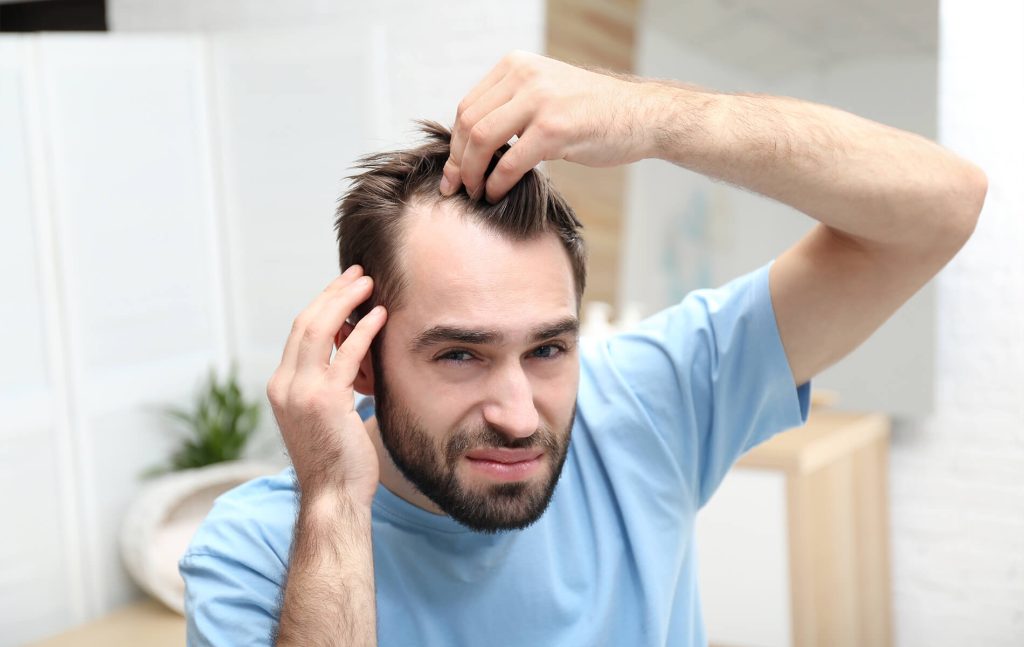The journey toward restoring a full head of hair often leads individuals to undergo hair transplant surgery. While modern surgical procedures and post-operative care have advanced significantly, one aspect that is frequently overlooked in the recovery process is the impact of diet and nutrition. A well-balanced diet can play a crucial role in promoting hair growth and improving transplant outcomes. In this comprehensive guide, we will explore the specific nutrients that aid in the healing process and offer tips for maintaining long-term hair health.
https://colombiahairtransplant.com
The Elements of Recovery
Hair transplantation is a complex surgical procedure that involves the removal and relocation of hair follicles from a donor site to areas with thinning hair or baldness. Post-surgery, creating an environment conducive to healing is essential for the newly implanted hair follicles to grow successfully.
Foods Rich in Iron Improve Circulation
Iron is an essential mineral that supports the production of red blood cells, which deliver oxygen throughout the body, including the scalp. Improved circulation is key to the repair and regrowth of hair. Foods rich in iron, such as lean meats, spinach, and legumes, can enhance blood flow to the scalp, aiding in the healing process.
Proteins: The Regenerators of Tissues
Hair is primarily made of keratin, a type of protein. After surgery, consuming a diet rich in protein is essential to support tissue repair and hair growth. Opt for lean protein sources such as poultry, fish, and tofu to reduce the risk of inflammation, which can interfere with follicle regeneration.
Fat for Cell Regeneration
Omega-3 and omega-6 fatty acids, found in foods like mackerel, salmon, avocados, and flaxseeds, promote healthy cell membranes. These fats support the integration of newly transplanted follicles, strengthening the scalp and reducing the risk of hair loss following surgery.
Micronutrient Growth: Essential Vitamins and Minerals
In addition to macronutrients like protein and fats, certain vitamins and minerals are vital for hair recovery and overall health.
Vitamins for Skin and Scalp Health
Vitamin E, known for its antioxidant properties, helps wounds heal and prevents scarring. Incorporate foods like almonds, sunflower seeds, and walnuts into your daily meals to support skin and scalp health.
Vitamin C: The Key to Collagen Production
Vitamin C plays a crucial role in collagen production, which is essential for maintaining healthy skin and tissues around the hair follicles. Citrus fruits, strawberries, and bell peppers are rich sources of vitamin C, helping speed up the healing process and promoting stronger hair.
Biotin for Fuller Hair Strands
Biotin, a B-vitamin found in eggs, sweet potatoes, and nuts, supports hair strength and fullness. Including biotin-rich foods in your diet can help prevent hair thinning and encourage thicker, healthier hair growth.
Zinc: A Key Nutrient for Healing
Zinc is essential for cell division and tissue repair. A deficiency in zinc can hinder the healing process and negatively affect hair growth. Foods like oysters, pumpkin seeds, and lentils are excellent sources of zinc.
Vitamins A and D for Hair Growth
Vitamins A and D play important roles in sebum production, which lubricates the scalp and prevents hair breakage. These vitamins also promote the formation of new hair follicles. Foods like carrots, sweet potatoes, dairy, and fortified cereals can provide these essential nutrients.
The Healing Power of Hydration
Staying hydrated is vital during the recovery process. Water facilitates the delivery of nutrients to the hair follicles and helps eliminate waste products, reducing the risk of complications and promoting faster wound healing. Be sure to drink plenty of water throughout your recovery period.
Eating Right After Surgery
While understanding the importance of nutrition is essential, it’s equally important to avoid foods that could hinder recovery or negatively impact the success of your transplant.
Whole, Nutrient-Dense Foods Over Processed Ones
Focus on whole fruits, vegetables, tubers, and whole grains, which are packed with anti-inflammatory nutrients. These foods support optimal healing post-surgery and provide a wide range of vitamins and minerals.
Avoiding Pro-Inflammatory Foods
While some inflammation is necessary for healing, chronic inflammation can slow the recovery process and damage hair follicles. Avoid processed foods high in saturated fats and sugars, which can create harmful free radicals and hinder healing.
Moderating Vitamin Intake
While vitamins are essential for recovery, taking excessive amounts can lead to toxicities that interfere with the body’s ability to heal. Consult your doctor about the best approach to vitamin supplementation during recovery.
Limiting Caffeine and Alcohol
Both alcohol and caffeine can lead to dehydration, which slows down the recovery process. While it’s best to limit consumption of both, moderate amounts may still be permissible. Be sure to drink plenty of water to counteract any dehydrating effects.
A Nutritional Strategy for Long-Term Hair Health
In addition to supporting the recovery process, maintaining a nutrient-rich diet will ensure long-term hair health. The same nutrients that promote healing after a transplant also help prevent future hair loss and promote overall well-being.
By focusing on a balanced diet rich in essential vitamins, minerals, and proteins, you can maximize the success of your hair transplant and enjoy a fuller, healthier head of hair for years to come.


